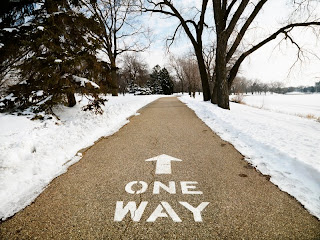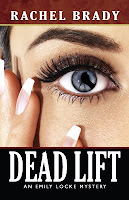by Rachel Brady
Disclaimer 1: The following opinions are entirely mine and do not necessarily represent those of NASA or its employees.
I work for a NASA life sciences contractor. This week, my company had an All-Hands meeting. Usually at these things, they entice attendance by offering us snacks and interesting guest speakers. At Johnson Space Center there is no shortage of remarkable people with fascinating stories to share. I always learn something.
This week’s guest speaker was NASA’s Director of Space Medicine, Dr. J.D. Polk. He spoke about his role in the rescue of the Chilean miners and geared his talk toward those of us in the room, all cogs in the wheel, really, to remind us that the whole is more than the sum of the parts… that our contributions at the lab level really do matter.
I’ll tell you some of the neat things he said, and then as usual I will offer my parallel about how yet another thing I’ve experienced appears to be a metaphor for Life.
Disclaimer 2: I didn’t take notes. Assume all these facts are wrong. It’s the gist that’s important.
The miners, he said, had been isolated for seventeen days before they were found. They were surviving on something like a tablespoon of tuna every two days, only fifty calories a day. They were starving, and for medical reasons I can’t remember, if you feed a starving person too quickly, you will kill him.
NASA had simmed this (our language for “simulated this”) for an old Hubble mission. Back then, the aim had been to prepare for a scenario in which crewmembers were stranded on orbit in a disabled vehicle. Weeks might pass before the next Shuttle could launch. How would we ration supplies? Our scientists had all the original data, including the spreadsheets and graphs that showed how much food to give a stranded crewmember in conditions like these. The folks on-site in Chile were able to bring the miners back to health successfully, thanks largely to the fact that NASA could so quickly produce the data they needed.
The next concern was what kind of health problems each may be suffering. The question was posed, “Which test do we do on-orbit that provides the most comprehensive information about a crewmember’s health?” It’s a urine test. Through urine tests, half of the miners were found to be in the early stages of kidney failure due to severe dehydration. Docs got to work on specific plans for each patient to turn this condition around.
Sometimes the NASA doctor and the NASA psychologist disagreed. It can be as important to care for a crewmember’s mind as it is to care for his or her body. The mental effects of long term isolation are ones I can hardly comprehend (most Space Station missions are six months long – the Russians have gone way longer). Anyway, at one particular juncture, the conversation was not about isolation but about smoking cigarettes. The miners wanted them. The doctor couldn’t abide. But the psychologist rallied on behalf of the miners. Polk said, halfway joking, that the argument was that otherwise they all would have killed each other. I thought this was an interesting example of professional compromise between two specialists focusing on different parts of the total Human.
Orthostatic intolerance is a cardiovascular effect commonly seen after spaceflight. My understanding of the condition is that, upon returning to earth, the cardiovascular system is now unaccustomed to pumping against gravity and can’t always do this effectively. Consequently, blood pools in the lower extremities and folks are prone to passing out. Usually, if a person passes out, they end up horizontal, and this works out fine because now the heart and brain are on the same level and the brain can get the oxygen it needs.
In the case of the miners, I believe Polk said they came up through a tube about 21” in diameter. No one was sure how long it would take to make the trip from the mine to the surface, and orthostatic intolerance was a huge concern. In this configuration, should a miner pass out, they would not go horizontal and the consequences could be devastating. Returning crewmembers are instructed to fluid load to counteract the effects of orthostatic intolerance. They also wear compression garments on the lower extremities to try to force body fluids to go upstairs. I was once a test subject and had an opportunity to wear these “compression garments.” Let me tell you. It is like squeezing your leg into industrial-strength pantyhose made for something the width of your wrist! Spanx can’t touch these things.
The flight docs were very familiar with the fluid loading and compression garment protocols and were able to share this information with the crew at the site. It was another example of how NASA’s experience with sustaining life in extraordinary conditions came into play in the rescue.
There was one other thing. Fuzzy memory here. Something in the body was depleted, I want to say it was some kind of vitamin or electrolyte, who knows… not important. But when this is depleted, and alcohol is consumed, again, death is assured. Just trust me and go along with it. Everyone knew that when these guys came up, there would be some serious partying. So the doctors went to great care to basically dose them up on whatever was required to save them from their sheer, unadulterated, partying joy. I kind of liked the thinking ahead part of the happy ending.
The intention of his talk was to encourage us. Each of us in our various labs contribute in ways that sometimes feel insignificant and he wanted to remind us that yes, the work matters.
Throughout the talk, he had one slide up in the background, and it wasn’t even a picture of the miners. It was a picture of a boy, about ten years old, with the most poignant blend of grief and relief on his face. Polk said, “Because we do what we do, this kid still has a dad.” I’m tearing up again just thinking about that.
Disclaimer 3: I heard nothing in his talk that tied the work of my particular lab (Neuroscience) to the Chilean rescue, but I cried like a girl anyway.
So I’ve been mulling over this speech for a few days and realizing that so much of life is this way. We see through our own lenses, and reach only our own small circles of influence. But when your circle of influence overlaps with mine, and mine overlaps with his, and his touches Oprah’s… well, you see what I mean.
We all have unique strengths, some of which may seem insignificant to us but are enormous to another person. The only way to optimize our gifts in life is to share ourselves.
Carpe diem, friends.















